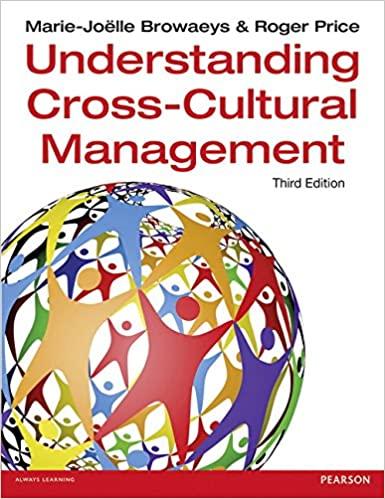My team and I were in London for a short stay because of business we were conducting
Question:
My team and I were in London for a short stay because of business we were conducting for a client of ours based in the UK. As a part of the contract with our client, my team was to be reimbursed for our living expenses in London.
Our contract, however, specified that we needed to make every ‘reasonable effort’ to sign a short-term lease (13 weeks) and reduce costs related to this expense. The contract did, however, have a clause allocating sufficient funding for us to sign a lease for 26 weeks if necessary. To assist us in finding housing, my Indian colleague offered to contact a ‘friend’. This ‘friend’ failed to find us a short-term lease, and was only able to find us an apartment with a 26-week lease. Additionally, the lease cost $8,880 in total, the exact maximum amount of money the client had allotted us for housing expenses.
My Indian colleague was very happy with the apartment and suggested we sign a lease form ‘immediately’.
However, according to information I had received from other professionals who had travelled to London, it should have been possible to find a short-term lease for far less money. For this reason, I suspected that the apartment transaction might be taking advantage of my client.
My dilemma was whether I should risk insulting my Indian colleague by not accepting the apartment arranged by his ‘friend’ because I believed that the transaction did not seem ‘fair’. If I failed to do this, it seemed likely that my client would question the legitimacy of such an odd transaction. I believed this could cause my own integrity to be put into doubt. Additionally, even if their auditors did not notice the ‘coincidental’ nature of the transaction, I could not help but feel it would be unethical if we did not abide by the contract and make ‘every reasonable effort’ to reduce costs.
Questions
1. If you were in the author’s situation, what would you do? Explain why.
2. How would you interpret the notion of ‘fairness’ with regard to the transaction being considered?
3. Analyse the dilemma described using both the analytical approach and the normative one suggested by Gudykunst and Kim which are described in the subsection ‘The ethical component’.
Step by Step Answer:

Understanding Cross Cultural Management
ISBN: 9781292015897
3rd Edition
Authors: Marie Joelle Browaeys, Roger Price





